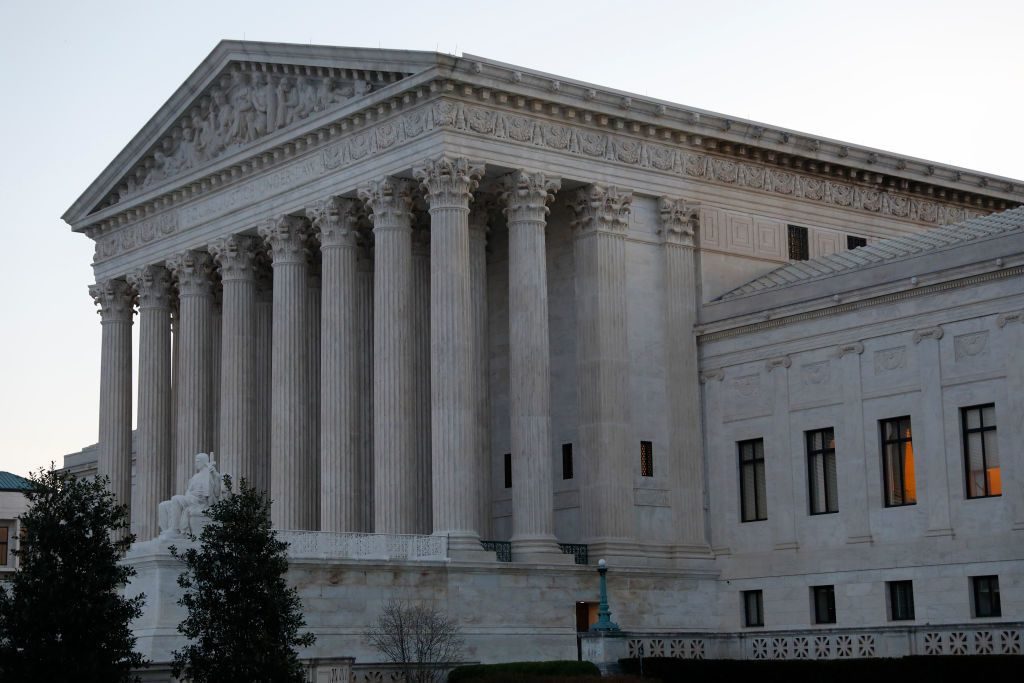 Employers seem poised to overturn an Obama-era rule prohibiting individual arbitration in employment contracts after the U.S. Supreme Court heard arguments in a trio of cases over whether New Deal-era labor laws protect the rights of employees to join in class actions.
Employers seem poised to overturn an Obama-era rule prohibiting individual arbitration in employment contracts after the U.S. Supreme Court heard arguments in a trio of cases over whether New Deal-era labor laws protect the rights of employees to join in class actions.
Arguments in Epic Systems v. Lewis and two other cases involving Ernst & Young and Murphy Oil quickly revealed a strong divide between the court’s liberal and conservative justices, with the conservatives appearing to favor the employer’s position. Swing Justice Anthony Kennedy asked probing questions of lawyers for the National Labor Relations Board and employees suggesting he didn’t buy their arguments, while newly seated conservative Justice Neil Gorsuch said nothing, perhaps indicating his mind was already made up.
The cases reflected the unusual administrative politics of the Trump era. Arguing for the NLRB, an independent agency that until recently was under the control of Obama-era appointees, was Richard Griffin, the former counsel for the International Union of Operating Engineers whose term ends next month. He was opposed by Richard D. Wall, principal deputy solicitor general for the U.S., who argued in favor of the employers and against the NLRB.
The dispute boils down to whether Section 7 of the National Labor Relations Act, which gives employees the right to engage in “concerted action” to better their wages and working conditions, trumps the Federal Arbitration Act, which protects the rights of parties to sign contracts requiring arbitration of their disputes. The Obama-era NLRB reversed decades of previous rulings to find that Section 7 prohibited labor contracts requiring individual arbitration, in a favor to organized labor and class-action attorneys.
“The stakes of the dispute came into focus late in the arguments, when Daniel R. Ortiz, representing the plaintiffs, said some 60 million employees work under contracts requiring arbitration, 23 percent of them with clauses banning class actions.”
Wage-and-hour lawsuits, where dozens to thousands of employees claim they have been deprived of as little as a few minutes per day of wages, have become a lucrative business for employment lawyers, but like all class actions, require large numbers of plaintiffs to be financially viable.
The stakes of the dispute came into focus late in the arguments, when Daniel R. Ortiz, representing the plaintiffs, said some 60 million employees work under contracts requiring arbitration, 23 percent of them with clauses banning class actions.
“So this decision in your favor would invalidate …agreements covering 25 million employees?,” Chief Justice John Roberts asked. Yes, Ortiz responded.
Earlier, Kennedy asked questions suggesting he was uneasy about scrapping arbitration, which proponents say can be a cheaper and more effective way to resolve employee disputes. The NLRB has long allowed employers to require arbitration in employee contracts and in fact unions often prefer it.
If the NLRB won, Kennedy said at one point, ”it seems to me quite rational for many employers to say forget it, we don’t want arbitration at all.”
“You wouldn’t be doing employees much of an advantage,” Kennedy said.
Justice Stephen Breyer suggested a simple solution: Rule that employers are barred from enforcing any contract that prohibits group action in any form. Ortiz agreed that made sense. But Roberts objected:
“Well, but, of course, there’s another statute that has either equally or plainer language which says that arbitration agreements will be enforced according to their terms,” he said. “Does it complicate the case to add that into it?”
Ortiz said the FAA has a “savings clause” that prohibits any arbitration contracts that are illegal.
“Well, that kind of begs the question,” Roberts said. “We’re trying to figure out if this is illegal.”
Justice Kennedy opened the argument by asking Clement, representing all three employers, if he’d conceded a class action lawsuit would be a “concerted action” under Section 7. Clement fumbled for an answer, and Kennedy went on to say if the justices ruled in his favor, they’d have to write an opinion stating the lawsuit is a protected activity under Section 7 but it was trumped by the FAA.
Clement said the employees are free to try and assemble a class action, but it would only get them “to the threshold of the courthouse,” where they’d have to abide by the terms of their contracts.
Justice Ruth Bader interjected to say what happens in the courthouse isn’t the issue; it’s the imbalance between employers and employees that is rectified by allowing them to join in collective action. She referred to the agreements requiring individual arbitration as “yellow dog” contracts.
Justice Breyer also objected, saying he was concerned Clement’s position was “overturning labor law that goes back to, for FDR at least, the entire heart of the New Deal.”
“I haven’t seen a way that you can, in fact, win the case, which you certainly want to do, without undermining and changing radically what has gone back to the New Deal,” Breyer said.
Clement repeatedly raised an analogy to other rules that most certainly are not trumped by the NLRA, including Rule 23 governing class actions, which requires plaintiffs to meet other conditions including numerosity and a common complaint that can be addressed in a single proceeding. No one is suggesting those rules should fall to the FLSA, Clement said, a position echoed by Roberts later in the arguments.
Wall, arguing for the government, said the NLRB had agreed with the employers for decades until the Obama administration changed the rules.
“But what about the reality?” Ginsburg asked. With individual claims as small as $1,800, employees couldn’t hire a lawyer to represent themselves.
“There is strength in numbers,” she said. “We have to protect the individual worker from being in a situation where he can’t protect his rights.”
The court rejected those “effective vindication” arguments in AT&T v. Concepcion, American Express v. Italian Colors and other decisions upholding the enforcement of contracts requiring individual arbitration, Wall responded. In those decisions the court held the fact a lawsuit is only viable as a class action doesn’t overpower the Federal Arbitration Act.
At the end of the arguments Clement acknowledged this reality. The former U.S. Solicitor General had argued for Italian Colors Restaurant in 2013 in its attempt to invalidate an arbitration contract with American Express. The court ruled 5-4 against him.
“Try as I might to say that that was a problem with effective vindication, I only got four votes,” Clement said. “So the Court seemed to say that that wasn’t a sufficient problem.”

Chief Executive Group exists to improve the performance of U.S. CEOs, senior executives and public-company directors, helping you grow your companies, build your communities and strengthen society. Learn more at chiefexecutivegroup.com.
0

1:00 - 5:00 pm
Over 70% of Executives Surveyed Agree: Many Strategic Planning Efforts Lack Systematic Approach Tips for Enhancing Your Strategic Planning Process
Executives expressed frustration with their current strategic planning process. Issues include:
Steve Rutan and Denise Harrison have put together an afternoon workshop that will provide the tools you need to address these concerns. They have worked with hundreds of executives to develop a systematic approach that will enable your team to make better decisions during strategic planning. Steve and Denise will walk you through exercises for prioritizing your lists and steps that will reset and reinvigorate your process. This will be a hands-on workshop that will enable you to think about your business as you use the tools that are being presented. If you are ready for a Strategic Planning tune-up, select this workshop in your registration form. The additional fee of $695 will be added to your total.

2:00 - 5:00 pm
Female leaders face the same issues all leaders do, but they often face additional challenges too. In this peer session, we will facilitate a discussion of best practices and how to overcome common barriers to help women leaders be more effective within and outside their organizations.
Limited space available.

10:30 - 5:00 pm
General’s Retreat at Hermitage Golf Course
Sponsored by UBS
General’s Retreat, built in 1986 with architect Gary Roger Baird, has been voted the “Best Golf Course in Nashville” and is a “must play” when visiting the Nashville, Tennessee area. With the beautiful setting along the Cumberland River, golfers of all capabilities will thoroughly enjoy the golf, scenery and hospitality.
The golf outing fee includes transportation to and from the hotel, greens/cart fees, use of practice facilities, and boxed lunch. The bus will leave the hotel at 10:30 am for a noon shotgun start and return to the hotel after the cocktail reception following the completion of the round.